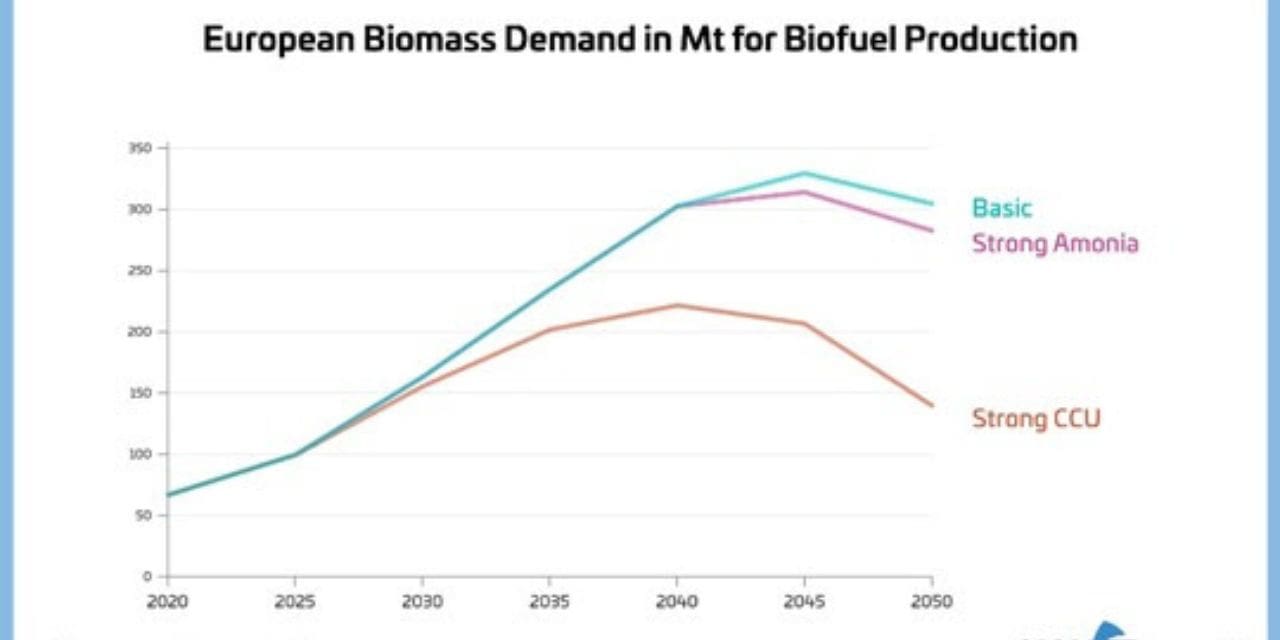Current transport regulations provide a unique long-term horizon for sustainable aviation and shipping fuel through the defined quotas – what does this mean for the chemical sector?
Biomass Demand in Transport Fuels and its Implications on the Chemical Sector: Insights from RCI’s New Report
Hürth, January 21, 2025: In line with the EU’s Green Deal, which aims for climate neutrality in the transport sector, a new report by the Renewable Carbon Initiative (RCI) explores future scenarios for carbon-based fuel demand up to 2050. The report highlights significant growth in the demand for second-generation biomass biofuels, driven by increasing quotas for aviation and shipping fuels. However, this rising demand poses challenges for other industries, including chemicals, which depend on biogenic and captured carbon for production.
RCI’s report develops three future scenarios based on current EU policies, emphasizing the intense competition for second-generation biomass and its potential scarcity for sectors such as chemicals. The chemical industry, heavily reliant on renewable carbon, may face restricted access to biomass, as fuel sectors can afford to pay higher prices due to binding quotas. To address this, the report suggests that a higher share of synthetic fuels could help reduce competition for bio-based feedstocks, ensuring that the chemical sector has access to the resources it needs.
The report also outlines key synergies between the transport and materials sectors. For instance, co-products from biofuel production, such as bio-based naphtha from Sustainable Aviation Fuel (SAF), can provide valuable feedstock for the chemical industry. With an estimated 1 to 2 million metric tons of bio-based naphtha available from SAF production, such by-products could support the chemical sector’s growth.
RCI’s experts propose that industrial biomass use should be grounded in scientific, objective criteria, focusing on land-use efficiency. Additionally, the report calls for the transformation of ethanol and biodiesel plants into feedstock suppliers for the chemical industry, helping preserve valuable infrastructure and ensuring sustainable feedstock supply.
A Holistic Approach to Sustainability
The integration of energy and transport decarbonisation with the transformation of carbon-intensive sectors such as chemicals and aviation is essential to achieving long-term sustainability. By reducing carbon demand in transport while fostering sustainable carbon cycles in industries that require carbon, such as chemicals, the EU can create a cohesive, net-zero industrial ecosystem.
RCI’s report underscores the importance of balancing biomass demand between the transport and chemical sectors. Ensuring a sustainable supply of second-generation biomass while addressing the needs of both sectors requires coordinated policy action. The EU must develop policies that align with the principles of a circular economy, allowing for a sustainable, resilient transition to renewable carbon.
“We need strategic, coordinated policies that ensure the availability of renewable carbon sources for both the transport and chemical sectors,” said Michael Carus, Executive Manager of the Renewable Carbon Initiative. “This is crucial to avoid unintended barriers to the chemical industry’s defossilisation efforts.”
About RCI:
The Renewable Carbon Initiative (RCI) is a global network of over 60 leading companies focused on accelerating the transition from fossil carbon to renewable carbon for organic chemicals and materials. RCI works to support this transition through scientific reports, advocacy, networking, and policy development.

